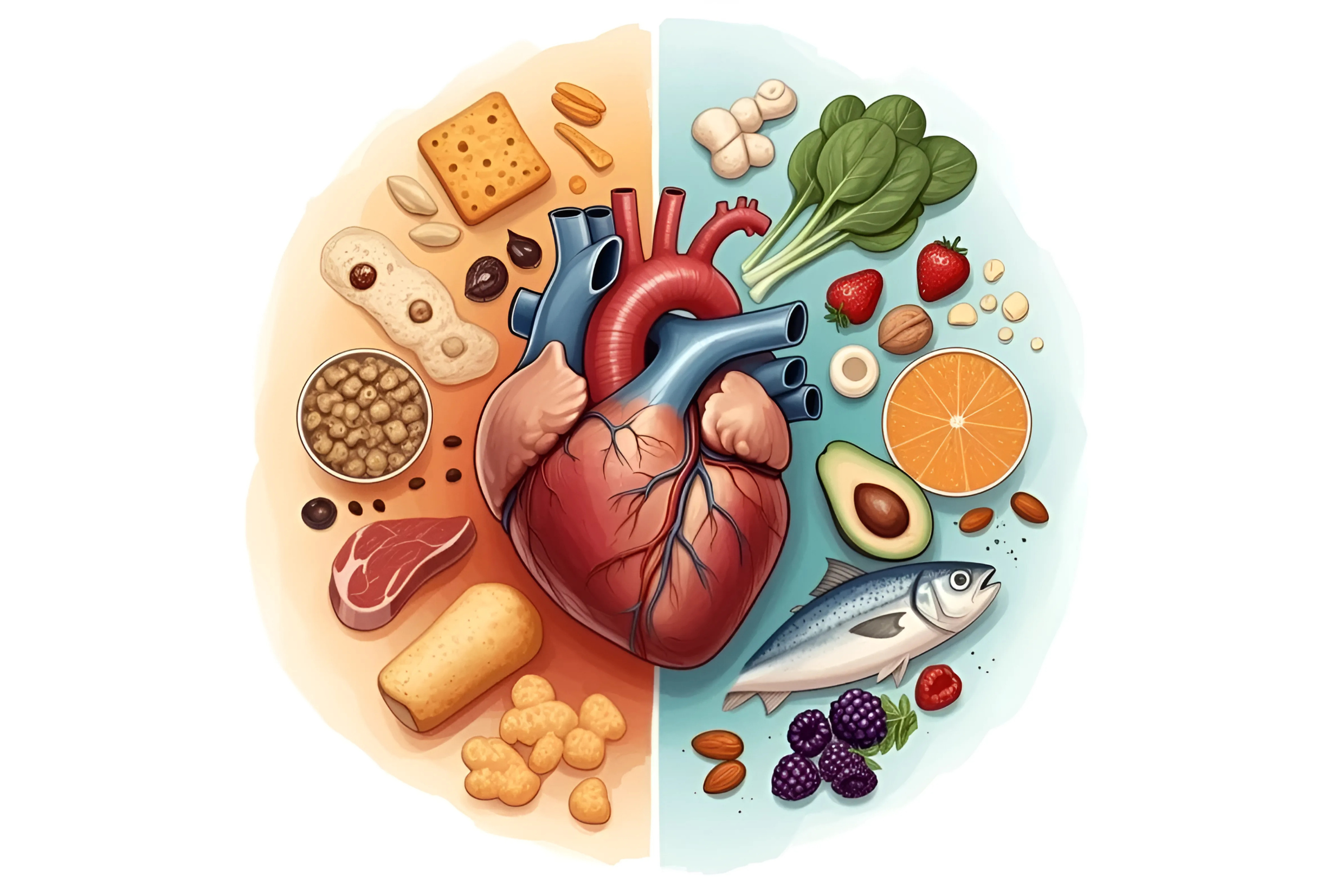Inflammation in the body can cause many health problems, including heart disease. If you want a healthy heart, it’s important to know about foods that can reduce inflammation and help you live a longer life. An anti-inflammatory diet can help you lower inflammation in the body and protect your heart. This blog will explain what inflammatory foods that cause inflammation are, and how you can make healthier choices to reduce inflammation in the body. We will also talk about the best anti-inflammatory fruits, vegetables that cause inflammation, and foods that increase inflammation. Let’s get started!
What is Inflammation?
Inflammation is the body’s natural response to injury or infection. It helps protect your body, but when inflammation becomes chronic (long-term), it can lead to diseases like heart disease, diabetes, and arthritis. High levels of inflammation can hurt your heart, so it’s important to focus on foods that lower inflammation.
What are Inflammatory Foods That Cause Inflammation?
Some foods can make inflammation worse in the body. These are called inflammatory foods that cause inflammation. Eating too many of these foods can increase the risk of heart disease. Here are some examples of high-inflammatory foods:
- Processed meats like bacon, sausages, and hot dogs
- Fried foods such as French fries and fried chicken
- Refined sugars in candies, cakes, and soft drinks
- Trans fats found in some margarine and packaged snacks
- White bread and other foods made with refined flour
These foods can cause inflammation and should be limited in your diet to protect your heart.
What Can You Eat to Reduce Inflammation?
The good news is that there are many foods that help lower inflammation. These foods are full of nutrients that fight inflammation and help keep your heart healthy. If you want to reduce inflammation in the body, consider adding these foods to your meals:
- Anti-inflammatory fruits like berries, oranges, and apples are great for reducing inflammation.
- Healthy fats from sources like olive oil, nuts, and seeds can help lower inflammation.
- Lean proteins such as chicken, fish, and beans can also reduce inflammation.
Eating these foods helps decrease inflammation and supports your heart health.
Anti-Inflammatory Fruits: The Best Choices for Your Heart
Anti-inflammatory fruits are rich in vitamins, antioxidants, and fiber that help reduce inflammation. Here are some anti-inflammatory fruits you should include in your diet:
- Berries (like strawberries, blueberries, and raspberries) – Full of antioxidants that reduce inflammation
- Apples – Contain fiber and vitamin C, which can help decrease inflammation
- Oranges – Rich in vitamin C, which is known to lower inflammation
- Cherries – Have anti-inflammatory properties that can protect your heart
- Grapes – Contain compounds that reduce inflammation in the body
These fruits are not only tasty but also powerful foods that can help you lower inflammation and keep your heart healthy.
Vegetables That Cause Inflammation: What to Avoid
While many vegetables are good for your health, some can cause inflammation in the body. Vegetables that cause inflammation should be avoided or eaten in small amounts. Here are some examples of vegetables that can cause inflammation:
- Potatoes (especially when fried)
- Tomatoes (if eaten in large amounts by people sensitive to them)
- Eggplants (which can trigger inflammation in some individuals)
It’s important to know that these vegetables may cause inflammation in some people, but not everyone will be affected. It’s always a good idea to pay attention to your body and how it responds to different foods.
Foods That Increase Inflammation: What to Stay Away From
There are several foods that increase inflammation and can harm your heart. These are foods that you should limit or avoid completely if you want to reduce inflammation in the body. Some common foods that increase inflammation are:
- Sugary snacks and desserts
- Refined grains like white rice and pasta
- Fast food and processed foods
- Alcohol in large amounts
- Red meat like beef and pork (when eaten too often)
Eating too much of these foods can increase inflammation and cause weight gain. It’s important to focus on healthier choices to help lower inflammation.
Diet for Inflammation and Weight Loss
An anti-inflammatory diet can also help you lose weight. Reducing inflammation in the body is closely linked to maintaining a healthy weight. If you want to lose weight and fight inflammation, focus on these tips:
- Eat plenty of fruits and vegetables: These are rich in vitamins, minerals, and antioxidants that help reduce inflammation.
- Choose whole grains: Instead of white bread and pasta, eat whole grains like brown rice, quinoa, and oats.
- Limit sugar and processed foods: These foods can increase inflammation and make it harder to lose weight.
- Include lean protein: Fish, chicken, beans, and tofu are great options for reducing inflammation.
- Drink plenty of water: Staying hydrated helps your body function well and reduces inflammation.
By following a diet for inflammation and weight loss, you can reduce inflammation in your body, protect your heart, and maintain a healthy weight.
A word from the Doctor —
Reducing inflammation in the body is key to keeping your heart healthy. By avoiding inflammatory foods that cause inflammation and choosing foods that lower inflammation, you can protect your heart and overall health. Anti-inflammatory fruits, vegetables, and healthy fats are all great choices to help you fight inflammation. Remember to limit high-inflammatory foods, such as processed meats and sugary snacks, and focus on eating a balanced diet to decrease inflammation. If you make these healthy changes, you’ll be on the path to a healthier, happier life with a strong, healthy heart.
So, get started by contacting us right away.

